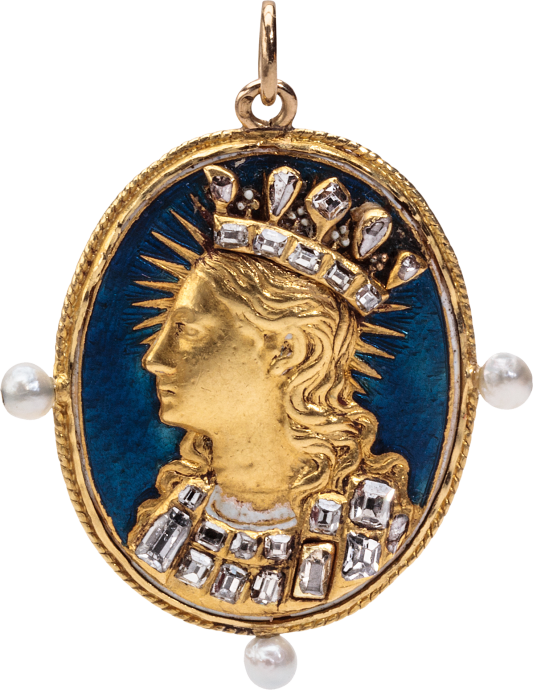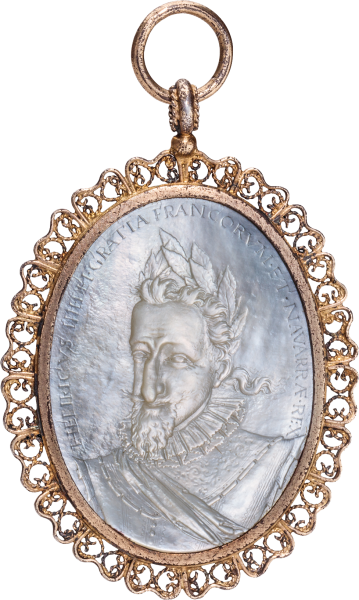


Pendant with Virgin Mary as Queen of Heaven
, Italy (?), c. 1550-1560

Pendant with Virgin Mary as Queen of Heaven
Description
This sumptuous image exudes regal power. It portrays the Virgin Mary as Queen of Heaven wearing a dress and crown studded with seven large diamonds and set against a translucent, rich blue celestial background. Far removed from the tender, humble Virgin seen in German and Netherlandish artworks of the period, she is a majestic ruler, mouth sternly set, head tilted upward, and face in full profile.
The oval pendant cast in high gold relief with a central medallion, the single figure filling the space, echoes jewelry portraits of the aristocracy during the Renaissance, which similarly offset the ruler’s image against a blue field composed of enamel or lapis lazuli, symbolic of divine power Only the rays of the shining gold halo that emerge behind the Virgin’s head and her long flowing hair (instead of neatly coiffed) distinguish her from female ruler portraits of the
period. Three studded pearls, forming an axis, also recall pendants of European rulers.
Wealth, royal status, and divine power come together in this opulent pendant. Portraits of the period show similar small oval pendants worn by women in the square of the garment or by men nestled inside multiple chains below the base of the neck.
Literature
Compare images from ancient Rome, for example a sardonyx cameo with female head (Kugel 2000, no. 18; Milan, c. 1550), and a pendant with gold, pearls, and enamel in the Staatliche Museum Kassel (Schmidberger/Richter 2001, no. 43; France, c. 1555-1560). For ruler pendants with blue backgrounds see a pendant of King Frances I of France (Venturelli 1996, p. 153; Milan, c. 1547); of the Duke William the Pious of Bavaria (ext. cat. Princely Magnificence 1980, no. 79; 1572); and a pendant of Emperor Charles V in the Thyssen Bornemisza Collection, Madrid (Somers Cocks/Truman 1984, no. 40; mid-sixteenth century). A comesso in the Metropolitan Museum shows the figure of Prudence against a blue background (acc. no. 17.190.907, c. 1590). By the 1530s, clusters of diamonds in different shapes and cuts became fashionable (Scarisbrick 2019, pp. 63, 68, 70).
Provenance
European Private Collection

